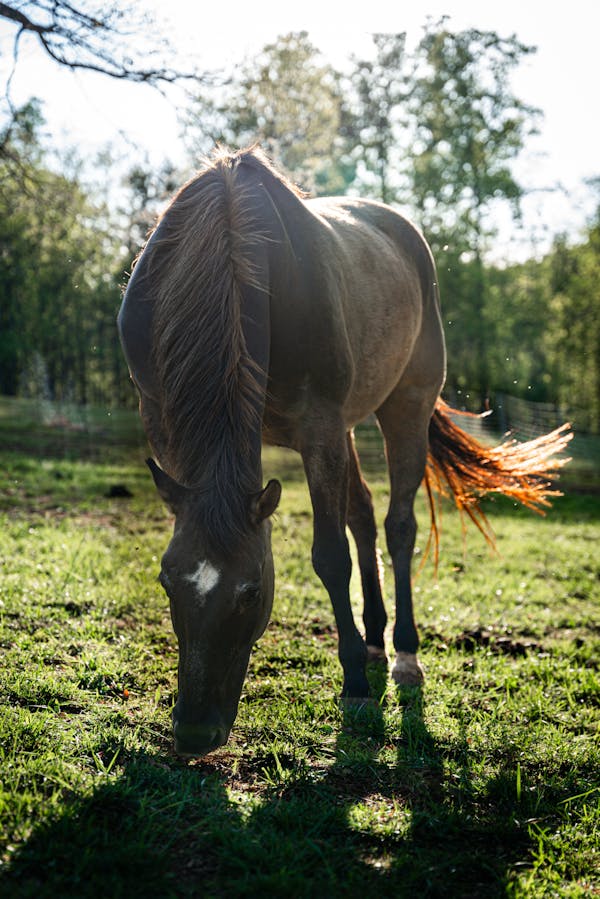In 2024, the market for horses in Nigeria presents a fascinating intersection of tradition, leisure, and commerce. Horses, long revered for their utility in transportation, sports, and cultural ceremonies, continue to capture the imagination of Nigerians across various regions and demographics.
This introduction delves into the current landscape of horse prices in Nigeria, examining the factors influencing these prices and the diverse uses of horses in the country today.
Whether for equestrian sports, leisure riding, agriculture, or cultural festivities, understanding the dynamics of horse pricing offers valuable insights into a market shaped by heritage and evolving interests.
Overview of the Horse Market in Nigeria
A Unique Equine Experience
Ever wondered what it’s like to buy a horse in Nigeria? Well, buckle up because you’re in for a wild ride! The Nigerian horse market is as diverse as it is fascinating, with a mix of local breeds and imported beauties that’ll make your head spin.
From Traditional to Trendy
You’ll find everything from sturdy work horses to sleek racing thoroughbreds. But here’s the kicker – the market isn’t just about buying and selling. It’s a cultural experience that’ll knock your socks off
Challenges and Opportunities
Now, don’t get me wrong – it’s not all rainbows and unicorns (or should I say, horses?). The Nigerian horse market faces its fair share of hurdles. You’ve got to navigate import regulations, deal with fluctuating prices, and sometimes, let’s face it, the facilities aren’t exactly five-star. But hey, that’s part of the adventure, right?
Factors That Impact Horse Prices in Nigeria
Breed and Bloodline
First things first: not all horses are created equal. You’ve got your fancy Arabian thoroughbreds and then you’ve got your sturdy local breeds. The more exotic or pure the bloodline, the more you’ll be shelling out.
Age and Training
Next up, consider the horse’s age and training level. A young, untrained horse might be cheaper upfront, but remember, you’ll need to invest time and money in its education. On the flip side, a well-trained, mature horse comes with a higher price tag but is ready to hit the ground running (or trotting, in this case).
Supply and Demand
Like any market, horse prices in Nigeria dance to the tune of supply and demand. During polo season, for example, you might see prices spike as enthusiasts scramble to get their hands on the best mounts. It’s all about timing, folks!
Economic Factors
Don’t forget about the bigger picture. Exchange rates, import costs, and general economic conditions all play a role. When the naira’s value drops, importing horses becomes more expensive, driving up local prices. It’s a domino effect that’ll have you checking your wallet twice.
Average Prices for Horses in Nigeria in 2024
Local Breeds vs. Imported Horses
You’ll find that prices can vary wildly depending on whether you’re eyeing a local Nigerian horse or an imported beauty. Local breeds like the Arewa or Bhirum might set you back anywhere from ₦150,000 to ₦500,000. But if you’re dreaming of an Arabian or Thoroughbred, be prepared to dig deeper into those pockets – we’re talking ₦1,000,000 to ₦5,000,000 or more.
Factors Affecting Price
What’s driving these prices, you ask? Well, a horse’s age, training, and pedigree play huge roles. A young, untrained horse will cost less than a seasoned show jumper or racehorse. And let’s not forget about location – horses in urban areas like Lagos or Abuja might come with a heftier price tag compared to rural regions.
Budget-Friendly Options
Don’t let those high-end prices scare you off! If you’re on a tighter budget, consider looking into:
- Older horses (they’ve still got plenty of love to give!)
- Horses that need some TLC or retraining
- Lease options instead of outright purchases
Conclusion
Remember, the initial purchase is just the beginning. Factor in ongoing costs like feed, vet care, and housing before taking the plunge into horse ownership. Happy horse hunting!
